Today marks 10 years since Commander Shepard united the forces of the galaxy against the Reapers, and Mass Effect 3 has lost none of it’s appeal.
There are a number of things I look for when I go to pick up a game, but gameplay (I’m more of a strategy gamer than anything requiring twitch mechanics) and genre (give me a farming sim or Uncharted-esque action/adventure any day) are definitely high on my list. The most important element, however, is the story.
The RPG genre was never one of my favorites when I was younger, but Bioware’s Knights of the Old Republic game helped me come to appreciate the storytelling power I’d been missing out on. As such, I was eager to dive into their original IP endeavor when the first Mass Effect launched in 2007.
I was completely blown away.
From the action elements, to the exploration, and the setting, the game is a LOT to take in. The story pulls you in almost immediately, thrusting you into the heart of this science fiction world they’ve created, populated with characters you genuinely care for, and want to learn more about. Couple this with some epic set pieces and the promise of a larger story at play, and I was thoroughly hooked.
Mass Effect 2 sucked me into the overall story even further, as we journeyed across the galaxy to face a “new” threat, that ultimately turned out to be related to our previous enemies, the Reapers. While it was a lot of fun, some of the tweaks made to it felt too much in one direction, eschewing some of the deeper RPG elements from the first game, and also pushing almost all the characters/party members we developed connections to aside…
In 2010, the start of the decade, fans were treated to their first look at the final game in the trilogy during the Spike TV Game Awards (a precursor to the current Game Awards show), and it was EPIC. It promised a finale unlike any other, thrusting us deep into the heart of the war while making it personal by showing the Reapers invading Earth.
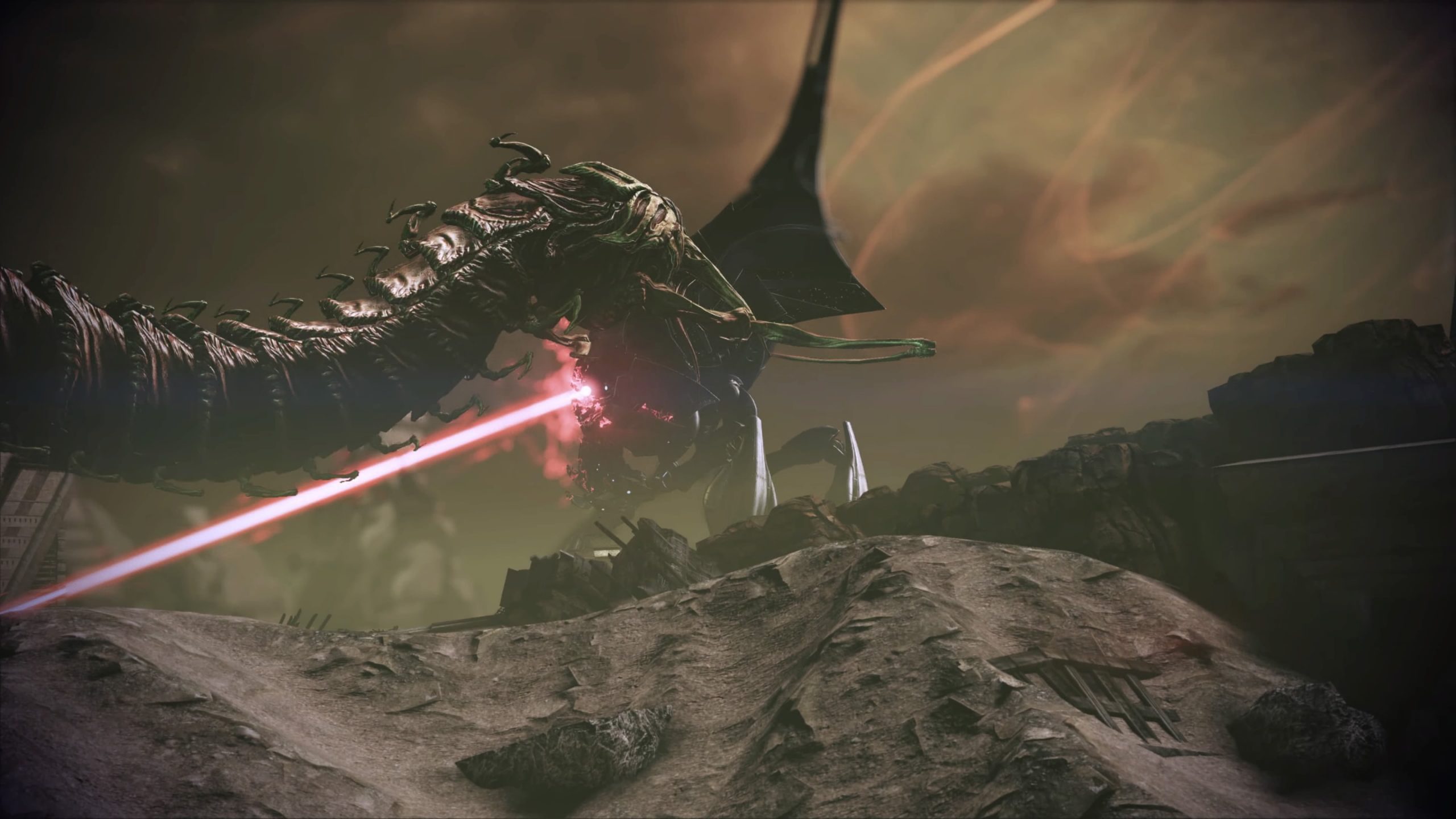
By the time Mass Effect 3 released in 2012, fans were chomping at the bit to get their hands on it and see how the story played out. It’s an experience I never forgot and manages to still hit hard a decade later.
This is something I was able to re-confirm thanks to the Legendary Edition re-release. My gaming time is always limited (with the kiddos), and I’m constantly behind on new releases, but I managed to replay all three original Mass Effect games in just a few weeks. That’s how impressive they still are. Now, as the third game celebrates it’s 10th anniversary, I wanted to look back at WHY it has such impressive staying power.
Like Never Leaving
When it first released, firing up Mass Effect 3 felt a lot like putting on my favorite clothes and relaxing. Bioware did an excellent job of thrusting you back into the action and in the midst of a new story, without feeling like any time had passed at all. It felt like catching up with an old friend as it seamlessly brought you into the new story.
A lot of this has to do with the fact that Mass Effect 3 did a far better job of incorporating the old and the new elements of the franchise together. Mass Effect 2 mostly wiped the slate clean at the beginning, including overall mechanics and the characters involve. Hell, it even relegated our original love interest to a minor cameo appearance. While the story touched on similar beats on the larger scale, it could easily been played on its own.
It’s a criticism Bioware took to heart and the third game managed to strike an incredible balance between incorporating things from both previous games (and even the books/comics) in a satisfying way. On top of bringing back characters from the first game in a more meaningful role (my original love interest was BACK!), the game dealt with non-returning party members in a significant way.
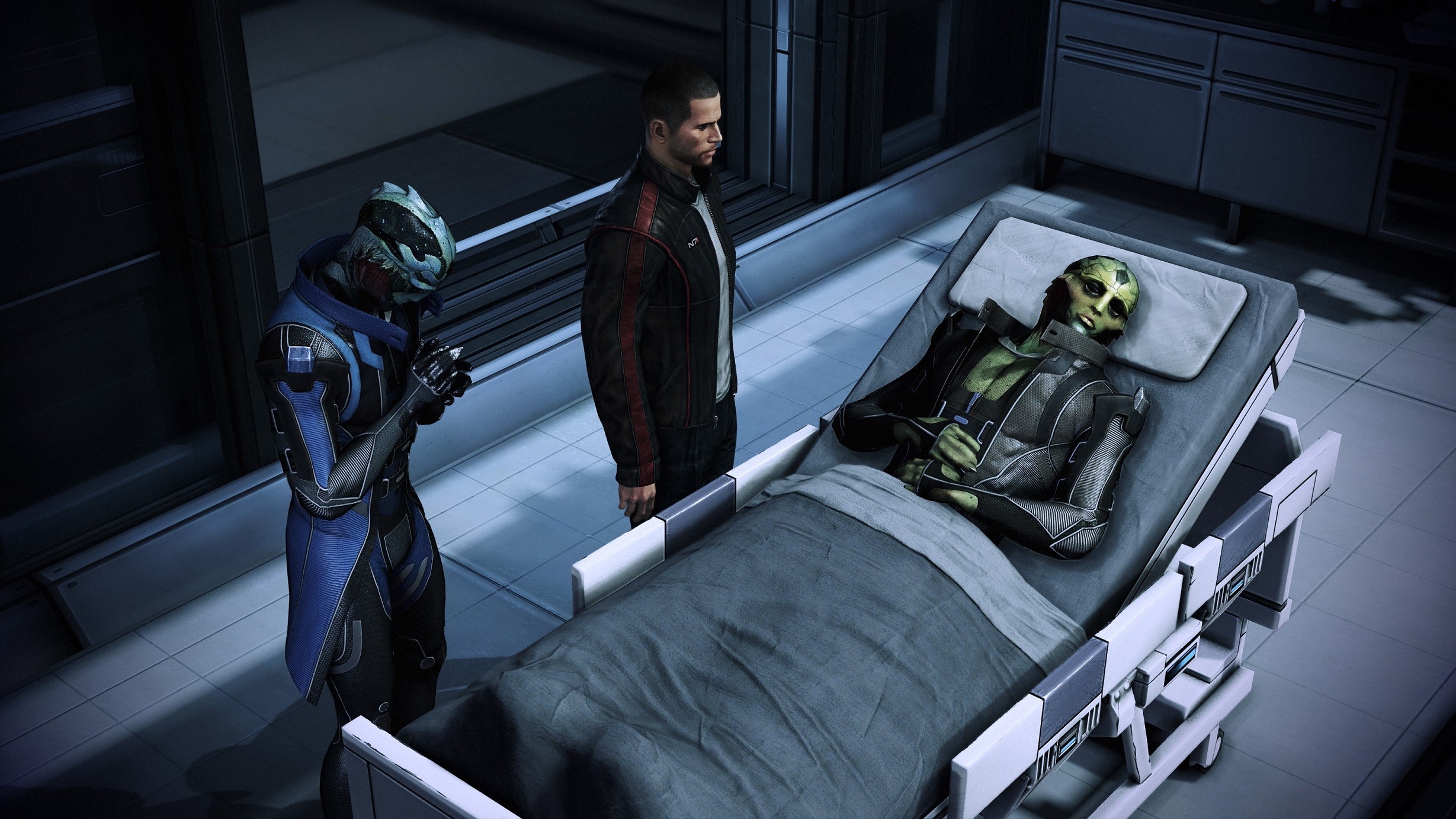
Thane Krios, for example, was a party member from the previous game and crucial member of your team; even a potential love interest. He’s missing from the roster in Mass Effect 3, but we find him later on in the hospital. The disease we learned of in the previous game has progressed to the point he requires daily medical care to function. The following dialog makes for some touching moments as we learn more about what’s been going on with him since leaving the team.
But it doesn’t end there. Despite not being a party member, Thane still serves an integral part of the story, alerting players to Cerberus attacking the Citadel, and helping take down the assassin sent to deal with the Salarian Councillor. As we say our goodbyes at his bedside, it’s clear he was more than a simple footnote within the sequel.
Other Mass Effect 2 squad members (who don’t rejoin your party) are treated with similar reverence, making it clear the story honors the decisions/story threads from the previous games in a more connective way. Hell, there comes a point where you have conversations with your first original love interest about the one from the second game.
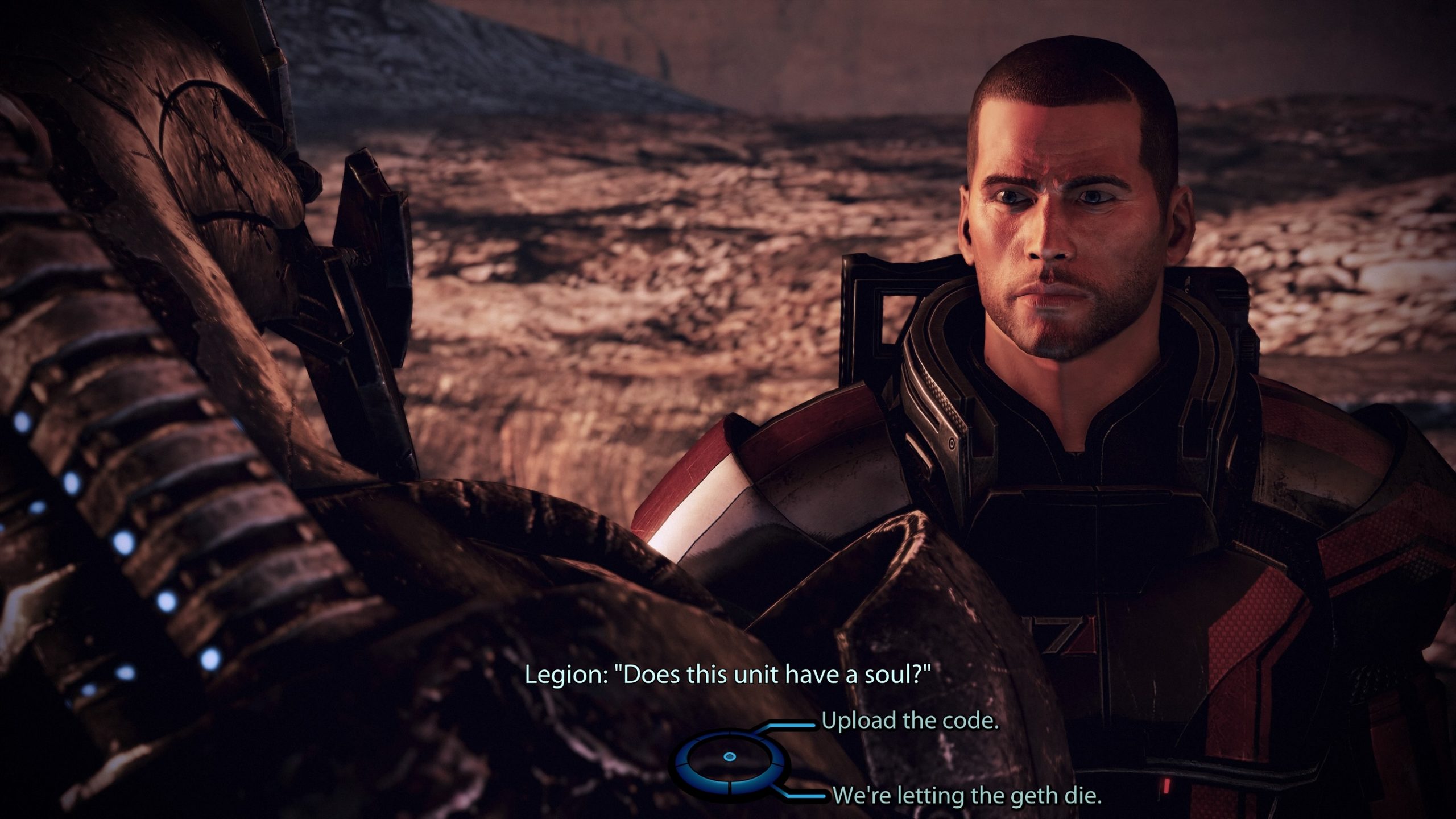
Beyond the story, however, Mass Effect 3 balances out the gameplay. Taking the feedback from fans, Bioware implemented some of the deeper RPG mechanics that were lacking from the second game. They managed to do this while still retaining the smooth flow of combat, even adding more options (the blade) to take enemies head-on. It allowed gamers who preferred the action heavy approach to stick with that, while giving more strategic gamers, the RPG elements to customize to their heart’s content.
The balance is impressive and the word “refined” comes to mind. On my recent replay of ME3, I was struck by how fluid it remains and that it feels like I’m playing a game that was just released, rather than something a decade old.
Enduring Qualities
This level of refinement in gameplay have a timeless quality to them, and it’s influence on action-RPGs throughout the rest of the decade are apparent. The story in Mass Effect 3, however, is still what sticks with me the most. The game does an excellent job of making the Reapers feel like a tangible threat throughout the entire game.
Everyone knows the memes about RPGs; how the world is on the brink of disaster, but you decide to take a detour to help someone pick flowers other some other seemingly non-essential task. In Mass Effect 3 the side quests feel like a significant part of the overall story and threat. There’s an ever present tension following your every step, no matter what you do. Even on the replay, the sudden “bwwwannngggg” of the Reapers finding my location and chasing me out of the solar system got my blood pumping.
A big part of this has to do with the tracking of your Military Strength throughout the game. Your primary goal is to acquire war assets that will help give you the edge when it comes time to battle it out with the Reapers once and for all. Failing to do certain things can drop your ranking, which impacts the ending you get, as well as which of your party members survives to see the ending.
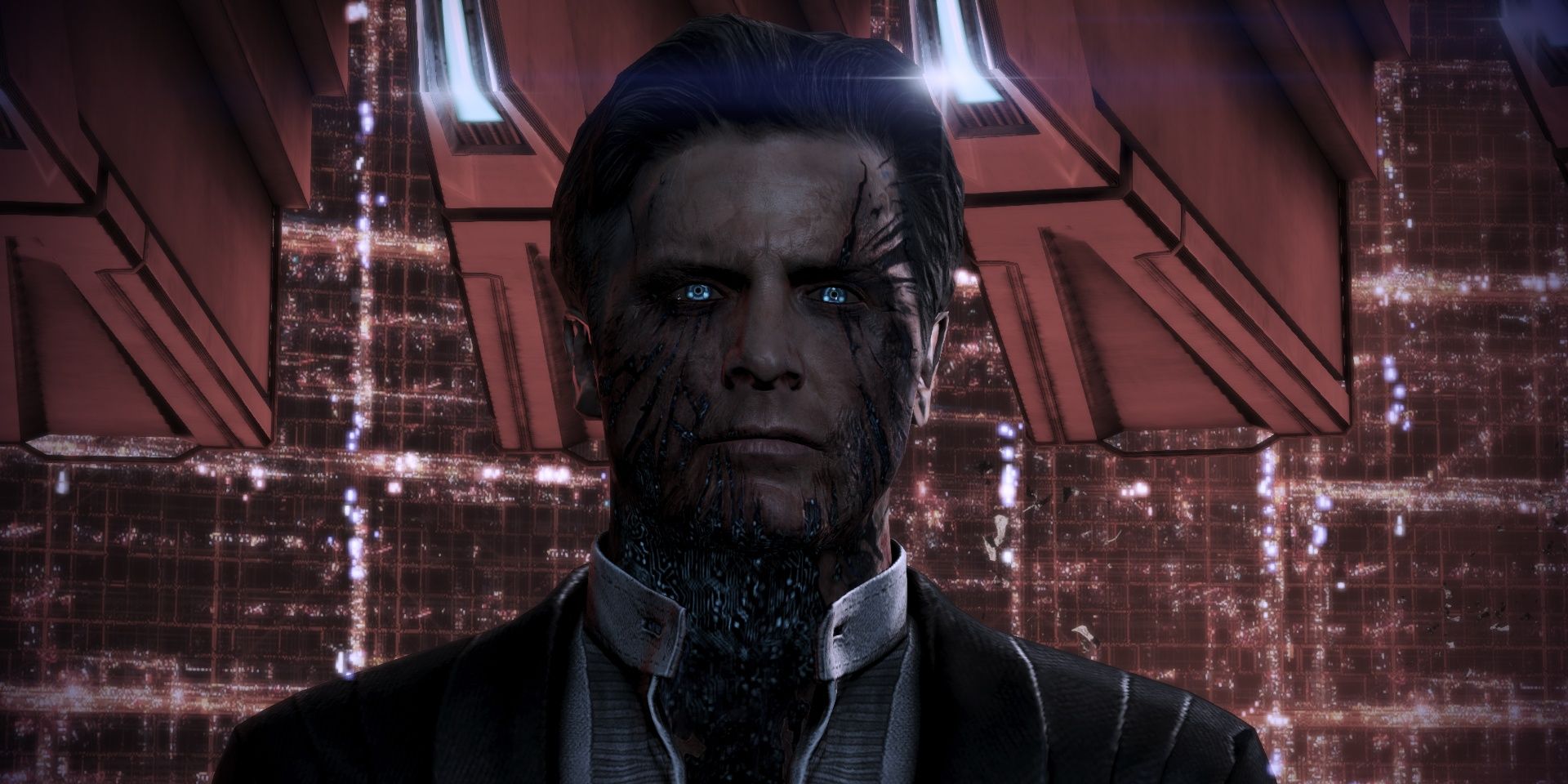
The Legendary Edition changed this up a bit (thanks to no longer keeping the multiplayer aspect that was crucial to your “Readiness” level), but the result remained the same. Every move made, even in the DLC that’s essentially about throwing a party, felt like it served the overall story being told. It wasn’t superfluous fetch quests, but added to the whole.
Along these same lines, the connections you build with your characters feel more potent than ever before. The ever-present sense of doom adds more weight to your choices. You’re keenly aware that the wrong decision, at any time, could result in the death of a beloved character. While some are going to happen regardless, it made every encounter and dialog option feel memorable.
In an industry built on franchises, I was always impressed Mass Effect 3 managed to feel like an ending. Even back then, most of us knew the series would continue in some form (which would ultimately come to fruition with Mass Effect: Andromeda and this new Mass Effect on the horizon), but the game still feels like we’re witnessing the end of an era. Between the storytelling beats, the character interactions, and the mechanics, everything built towards this idea things would never be the same again.
And that’s not to mention the incredible set pieces featured throughout the game. I mean, who can forget facing down (and killing) a Reaper with just your rifle on the plains of Rannoch? Or witnessing the giant Thresher Maw engulf the Reaper on Tuchanka? The epic nature of some of these battles continue to stick in my memory, even long after I’ve seen the end credits.
There’s a personal reason why Mass Effect 3 continues to hold such a special place in my gaming heart. The game originally launched, roughly, around the same time my (then) wife and I separated. Playing through Mass Effect 3 helped a lot, and served as more than just a simple escape.
The game’s story is one of love and loss; fighting for something bigger than yourself, and leaning on those closest to you for support. Silly as it may sound, these themes (and playing through the various connections with my party members) assisted me in working through my own feelings and dealing with the dramatic shift in my life.
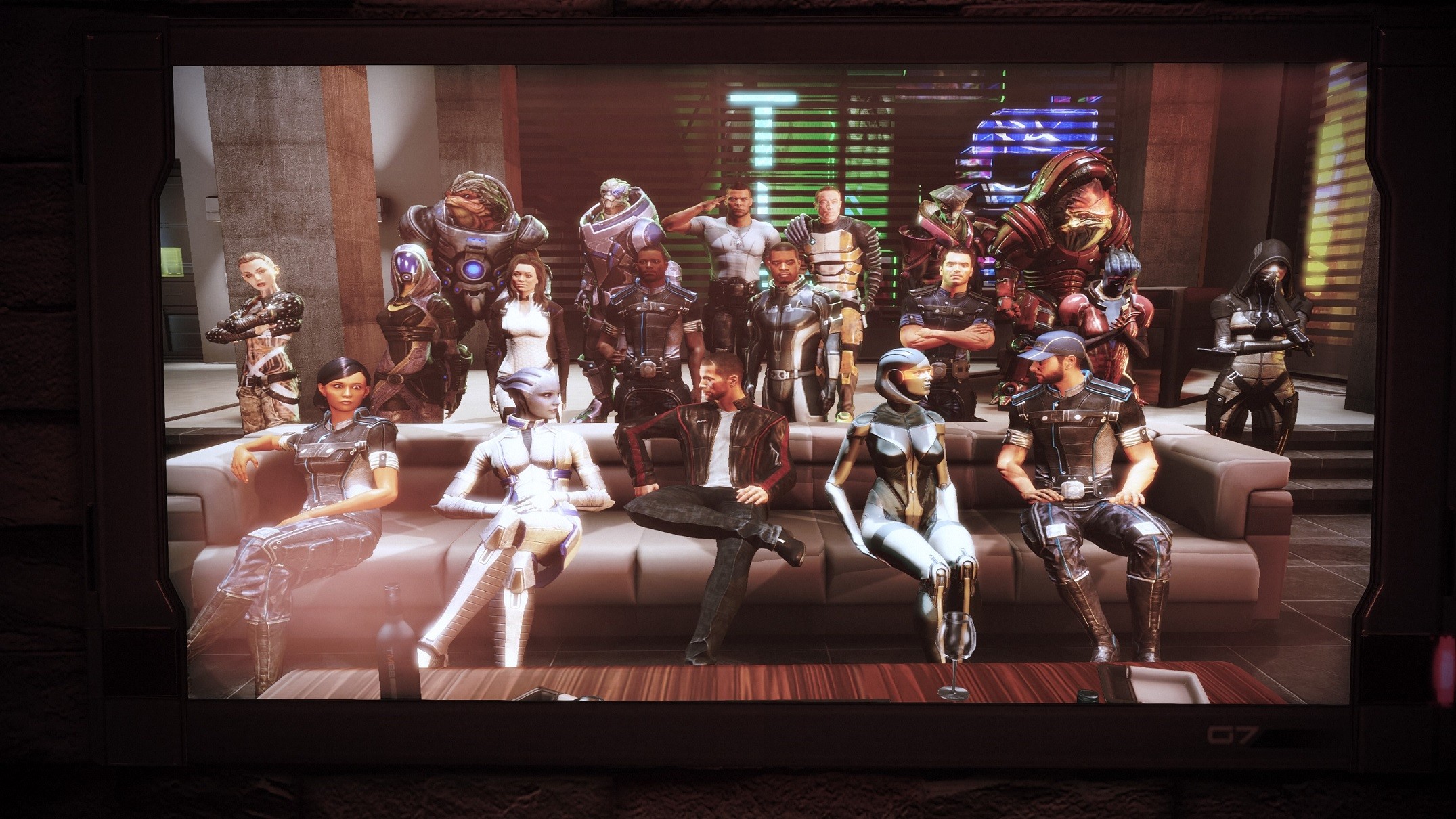
Unforgettable
Not everyone was enamored with the ending upon the original release, however. Personally, I disagreed and felt some of the hoopla surrounding the “controversy” was a bit over the top from fans. Once again Bioware showed their willingness to listen to gamers and take feedback seriously. The “Extended Cut” and Citadel DLCs added new interactions with squadmates, and tweaked the ending to make things more satisfying overall.
Mass Effect 3 still feels like a master class in how to wrap up a trilogy. It managed to be fun, engaging, and with many memorable sequences gamers are likely to be talking about for many more years to come. It’s impressive to see how well it holds up a decade later (some games don’t age well past their year of release) and how it’s influence on other franchises continue to be felt.

